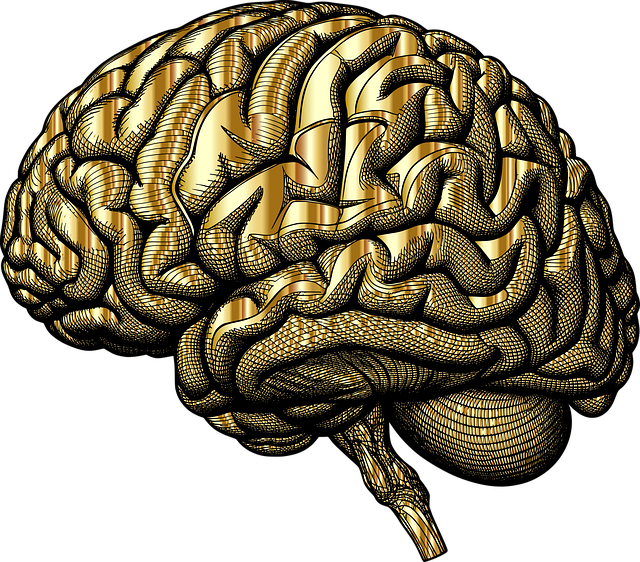Stress significantly impacts older adults with functional neurological disorders (FNDs), exacerbating symptoms and increasing anxiety and depression. To mitigate this, tailored therapy using Cognitive Behavioral Therapy (CBT) and mindfulness practices is highly effective in managing FND symptoms and enhancing overall mental wellness. These methods empower elders to cope with age-related stress challenges, focusing on mind-body connections through physical activity, mindfulness, and journaling for improved quality of life and resilience.
Stress reduction is a vital aspect of holistic health, especially for seniors with functional neurological disorders (FNDs). This article delves into effective strategies to combat stress among elderly individuals, focusing on its profound impact and exploring tailored therapy options. We discuss the unique challenges faced by elders with FNDs and provide practical daily management techniques. By understanding the intricacies of stress and its effects, we empower caregivers and patients to navigate this complex issue, ultimately enhancing their quality of life. Exploring therapy options and practical strategies ensures a comprehensive approach to stress reduction in this vulnerable population.
- Understanding Stress and Its Impact on Elders with Functional Neurological Disorders
- Exploring Therapy Options for Effective Stress Reduction in Elderly Individuals
- Practical Strategies for Daily Stress Management: A Holistic Approach for Seniors
Understanding Stress and Its Impact on Elders with Functional Neurological Disorders

Stress is a common experience for many, but its impact can be particularly profound in older adults with functional neurological disorders (FNDs). FNDs, often characterized by persistent symptoms like tremors, spasms, or sensory disturbances, can significantly increase an individual’s vulnerability to stress-related anxiety and depression. The constant management of these physical manifestations can lead to heightened stress levels, affecting overall mental wellness.
In addressing stress reduction for elders with FNDs, tailored therapy becomes essential. Cognitive Behavioral Therapy (CBT), for instance, has proven effective in helping individuals challenge negative thought patterns and develop coping strategies. Combining CBT with mindfulness practices offers a powerful approach to enhance emotional healing processes and promote mental wellness, as highlighted in the popular Mental Wellness Podcast Series Production and Development. These therapeutic methods not only assist in managing symptoms but also empower elders to navigate stress more effectively within their daily lives.
Exploring Therapy Options for Effective Stress Reduction in Elderly Individuals

Elderly individuals often face unique challenges when it comes to managing stress due to age-related changes in their bodies and minds. Exploring therapy options tailored for seniors is a crucial step in promoting emotional well-being. Various therapeutic approaches can be effective in reducing stress among the elderly, addressing specific needs such as cognitive decline or functional neurological disorders.
One promising method is cognitive behavioural therapy (CBT), which helps individuals identify and change negative thought patterns contributing to stress. This therapy has shown success in managing anxiety and depression, common stressors in older adults. Additionally, mental health professionals can employ mindfulness techniques to enhance focus and calmness, thereby reducing overall stress levels. A comprehensive risk assessment is essential to ensure the safety and well-being of elderly clients during therapy, allowing for personalized approaches that build confidence and promote emotional resilience.
Practical Strategies for Daily Stress Management: A Holistic Approach for Seniors

Managing stress on a daily basis is especially important for seniors, as it can significantly impact their overall health and well-being. A holistic approach to stress reduction involves nurturing both the mind and body. For older adults, this might include regular physical activity tailored to their abilities, such as gentle yoga or walking, which not only improves cardiovascular health but also provides a mental respite. Engaging in therapy specifically designed for seniors with functional neurological disorders can offer valuable tools for coping with chronic stress and anxiety.
Additionally, cultivating inner strength through mindfulness practices and journaling has proven effective in managing stress levels. Mental wellness journaling exercises guide individuals through reflective writing, helping them identify sources of stress and develop healthier coping mechanisms. These practices encourage self-care and provide a sense of calm and clarity. By combining physical activity, therapy tailored to their needs, and mental wellness tools like journaling, seniors can proactively manage stress, improve their quality of life, and enhance overall mental resilience.
In light of the significant impact of stress on elders with functional neurological disorders, understanding and implementing effective stress reduction methods is paramount. The article has explored both therapeutic interventions, such as cognitive-behavioral therapy for elders with functional neurological disorders, and practical strategies for daily management. By integrating these approaches, seniors can foster resilience, improve quality of life, and navigate the challenges associated with their conditions more effectively. It’s crucial to remember that stress reduction is a holistic process, requiring tailored solutions that address physical, mental, and social well-being.














